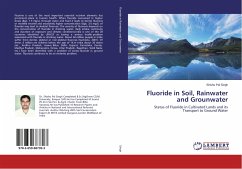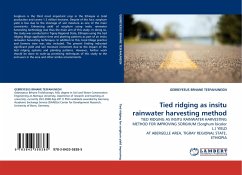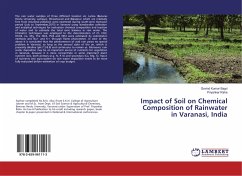
Fluoride in Soil, Rainwater and Grounwater
Status of Fluoride in Cultivated Lands and its Transport to Ground Water
Versandkostenfrei!
Versandfertig in 6-10 Tagen
58,99 €
inkl. MwSt.

PAYBACK Punkte
29 °P sammeln!
Fluorine is one of the most important essential nutrient elements has prominent place in human health. When fluoride consumed in higher doses ( 1.5 mg/L), through water and food it leads to dental fluorosis or mottled enamel and excessively higher concentration ( 3.0 mg/L) of fluoride may lead to skeletal fluorosis. The severity of fluorosis depends on the concentration of fluoride in drinking water, daily intake, continuity and duration of exposure and climatic conditions.India is one of the 28 countries identified by UNICEF as having a serious health problem associated with fluoride in drink...
Fluorine is one of the most important essential nutrient elements has prominent place in human health. When fluoride consumed in higher doses ( 1.5 mg/L), through water and food it leads to dental fluorosis or mottled enamel and excessively higher concentration ( 3.0 mg/L) of fluoride may lead to skeletal fluorosis. The severity of fluorosis depends on the concentration of fluoride in drinking water, daily intake, continuity and duration of exposure and climatic conditions.India is one of the 28 countries identified by UNICEF as having a serious health problem associated with fluoride in drinking water. About 62 million people in India suffer from dental, skeletal or non-skeletal fluorosis (Susheela, 2001). Of these, 6 million are children below the age of 14.In India about 20 states (viz., Andhra Pradesh, Assam, Bihar, Delhi, Gujarat, Karnataka, Kerala, Madhya Pradesh, Maharastra, Orissa, Uttar Pradesh, Rajasthan, Tamil Nadu etc.) have been identified with a problem of excess fluoride in ground water. Fluorosis continues to be an endemic problem.












